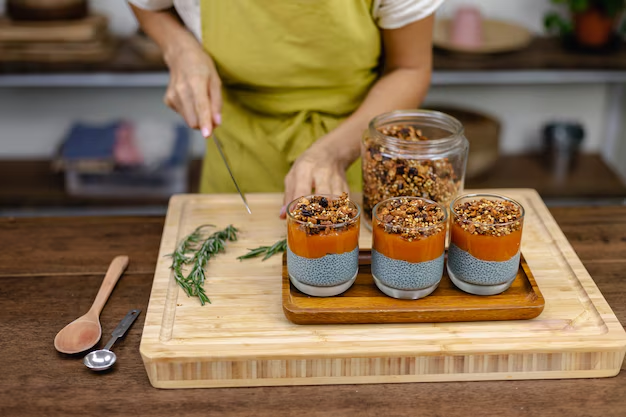Is Your Ketchup Better Off in the Fridge? A Comprehensive Guide to Ketchup Storage
Ketchup is one of those ubiquitous condiments that finds its way onto burgers, fries, and a multitude of other dishes, adding a tangy punch that so many of us crave. However, there's a question that divides households and even sparks debates worldwide: Do you have to keep ketchup in the refrigerator? Let's delve into this topic from multiple angles to comprehensively understand whether your ketchup belongs in the fridge or is perfectly fine on the counter.
🥫 Understanding Ketchup: What's in the Bottle?
To begin unraveling the ketchup storage mystery, it’s key to grasp what makes up ketchup. Classic ketchup is a tomato-based condiment that includes vinegar, salt, spices, sweeteners, and often a thickening agent. This blend of acidic ingredients is crucial to understanding ketchup’s shelf stability.
The Role of Vinegar and Acidity
- Vinegar: One of ketchup's primary preservatives is vinegar. It is acidic, which helps slow down the growth of bacteria and other microorganisms.
- Acidity: Ketchup's generally acidic pH has a natural preservative effect, which is part of why some argue it doesn't necessarily need refrigeration.
🌡️ To Refrigerate or Not: What’s the Consensus?
Let's explore both sides of this debate by considering what happens to ketchup in and out of the fridge.
Keeping It in the Fridge
Advantages
- Longevity: Refrigeration helps in prolonging the shelf life of ketchup after it's been opened. While unopened, ketchup is generally stable on a pantry shelf.
- Freshness: The flavor and color of ketchup are maintained for a more extended period with refrigeration.
Disadvantages
- Temperature: Cold ketchup can thicken and be harder to pour. Some consumers prefer the ease of using room-temperature ketchup.
Leaving It Out
Advantages
- Convenience: Room-temperature ketchup is easier and perhaps quicker to use, especially if you're seeking the perfect drizzle.
Disadvantages
- Lifespan: Ketchup may not last as long when stored in warm environments, particularly when it's consistently exposed to varying temperatures.
🕒 Shelf Life and Quality
The shelf stability of ketchup is nuanced. Here's a closer look at how time and conditions influence its quality and safety.
Before Opening: The Pantry is Fine
Before being opened, ketchup is usually shelf-stable at room temperature thanks to its sealed environment and inherent preservatives. Most manufacturers recommend storing unopened ketchup in a cool, dry place.
After Opening: Assessing the Situation
Post-opening, conditions change. Although ketchup can survive outside the refrigerator for days or even weeks safely, its quality might diminish faster than when it is refrigerated.
Rule of Thumb: If you use ketchup frequently and finish a bottle within a month, storing it in the pantry could be acceptable. For occasional users who may keep a bottle for several months, refrigeration is advisable.
🥄 Practical Ketchup Storage Tips
Now that we’ve explored the different storage methods, here are practical tips to ensure you get the most from your ketchup:
- Use By Date: Always check the bottle’s use-by or best-by date. These are guidelines for quality and not safety.
- Avoid Contamination: Do not leave the lid open and prevent contaminating the bottle by keeping the nozzle clean.
- Observe Changes: Look out for changes in smell, flavor, or texture, as these can indicate spoilage.
- Seal It: Always ensure the bottle is tightly sealed to prevent exposure to air, which can accelerate spoilage.
🍟 Related Condiments and Their Storage
Ketchup is part of a broader group of condiments, each with unique storage needs. Let's briefly examine a few:
Mustard
Like ketchup, mustard also benefits from vinegar's preservative qualities. Refrigeration after opening maintains its pungency and extends freshness but isn’t always critical.
Mayonnaise
This creamy condiment requires refrigeration once opened due to its egg content, which can spoil more easily if left in warm conditions.
Hot Sauces
With many hot sauces similar to ketchup in terms of acidity, they can be left in the pantry, though refrigeration will maintain their vibrant flavors longer.
⚖️ Balancing Taste and Safety
Ultimately, deciding whether to refrigerate ketchup depends on your preferences. Here are some factors to consider in your final decision:
- Usage Frequency: Regular users might not see an issue with pantry storage.
- Climate: In warmer climates where room temperatures soar, refrigeration is the safer choice.
- Taste Preferences: If you enjoy a chilled tomato burst on your dishes, the fridge is your friend.
📝 Quick Summary: Ketchup Storage Tips
Here’s a handy visual summary of ketchup storage tips:
- 🕒 Check Frequency: How often do you use it? Frequent users may opt for pantry storage.
- 🌡️ Consider Temperature: In warmer environments, refrigeration extends shelf life.
- 🌱 Watch for Spoilage: Any changes in smell or taste? Time to refrigerate.
- 🧹 Keep It Clean: Ensure the bottle is sealed and nozzle clean to avoid contamination.
- 📅 Mind the Date: Use-by dates are key markers of quality.
In the end, whether you refrigerate your ketchup or not, the choice is yours to make based on taste preference, usage, and storage conditions. With this guide, you now have the know-how to keep your ketchup in prime condition, ensuring every squeeze is as fresh and tangy as the first. Enjoy your ketchup, no matter how you store it!

